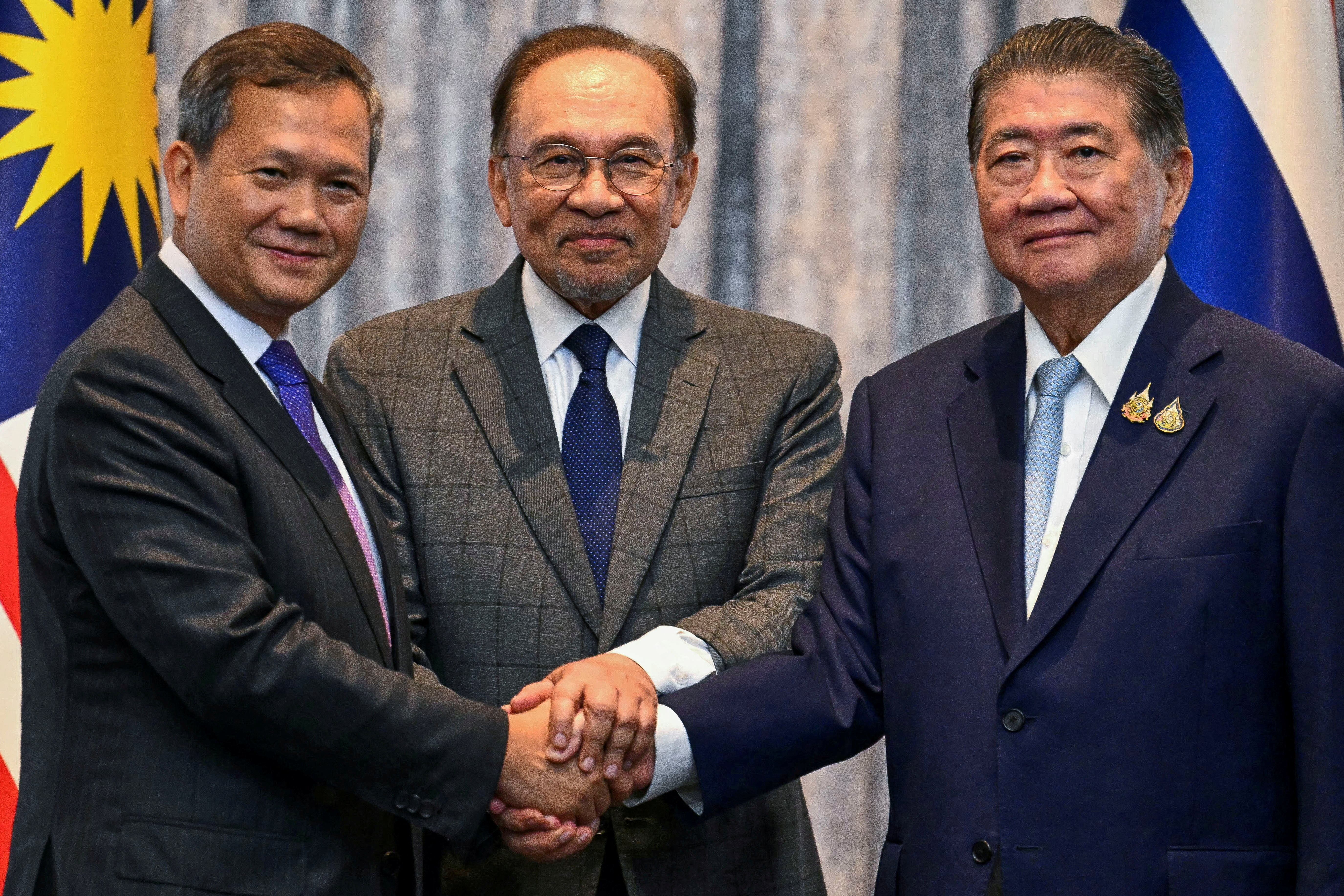Now would be a good time to watch a Netflix documentary series called Chimp Empire. It’s about one year of an ongoing war between two bands of chimpanzees, shot up close and personal, and the narrator never suggests that there is any similarity between their war and our wars. He doesn’t need to. You’d have to be dead to miss it.
The central issue, as in most human wars, is about territory, or more precisely the resources it contains. Fruit trees near the constantly patrolled border between the territories of the two chimp groups in Uganda’s Kibale National Park are the apple of discord in this case.
The aim of the game is to shift that boundary eastward to include those trees (the Western band) or to keep it where it is (the Central group). It’s rather like the recent mini-war between Thailand and Cambodia, currently stalled by a ceasefire – although the bone of contention in the human case is only a symbol (an ancient temple) rather than a resource of real value.
But it’s not a single-minded struggle over resources in the case of the rival chimpanzee bands either. It has only been a few decades since the Western band broke away from the bigger Central group (chimpanzees bands fission if they grow much past a hundred members), and the rivalries between powerful senior males of the two groups have continued to fester.
It would be disrespectful to compare the high drama of the broken alliance between the Shinawatra and Hun families who dominated Thai and Cambodian politics in recent times to a border war led by high-status members of two neighbouring chimpanzee bands in Uganda. Nevertheless, there is a certain resonance in the circumstances.
By the time we come to big wars between major developed states like Russia and Ukraine, the causes of the wars are often abstract ‘strategic’ concerns far removed from the realities of daily life for their citizens. Yet still the echoes of past behaviours resonate.
What drove Vladimir Putin’s invasion of Ukraine, for example, was regret at the collapse of the Soviet empire almost forty years ago and determination to reassemble at least the Slavic parts of it (‘Russky Mir’) into a single, powerful Orthodox state. Even though he is probably not a believer himself.
At that point we have left our primate relatives far behind. So far as we know, they are not prone to abstract thinking, so their wars are always about real resources and/or personal advantage. Whereas the ‘world wars’ of the 20th century and the possible global nuclear holocaust of the 21st are not rational: the cost vastly outweighs any potential gain.
That does not mean that no country will ever again resort to violence, nor does it mean that non-violence is the answer. Naked violence always trumps sweet reason. The only answer is what is now known as the ‘international rule of law’: a de facto alliance of countries that outlaw military conquest and is willing to enforce that law by violence if necessary.
That alliance already exists and its rules are spelled out in the Charter of the United Nations, signed in 1945. The fact that many countries have ignored its ban on changing international boundaries by force (and in some cases got away with it for long periods of time) is less important than the fact that it exists at all.
The diplomats who wrote that Charter did not know how old and deeply rooted the institution of war was. They knew nothing about war among non-human primates. They did not realise that war was universal among human hunter-gatherers even long before the rise of the first civilisations.
But they knew that their attempt to end war would fail many times in many places before it succeeded, if it ever did. Over the past eighty years many millions of people have been killed in wars, but their project has been more successful than most of them expected: the death toll from war dropped steeply as the decades passed, and nuclear weapons were never used again.
In the past few years, however, there has been a sense that the project is backsliding. Not only are major powers resorting to war more often, but they are doing so without even trying to justify it under the UN Charter rules for the use of force: Russia in Ukraine, Israel in Gaza, the United States over Iran.
Maybe so much time has passed that they have forgotten what everybody’s objective was at the end of the Second World War: to replace the rule of war with the rule of law. If so, they should all be obliged to watch ‘Chimp Empire’, to remind them where we have come from and why we need to get to a better place.
Gwynne Dyer’s new book is ‘Intervention Earth: Life-Saving Ideas from the World’s Climate Engineers’. The previous book, ‘The Shortest History of War’, is also still available.






Click here to change your cookie preferences